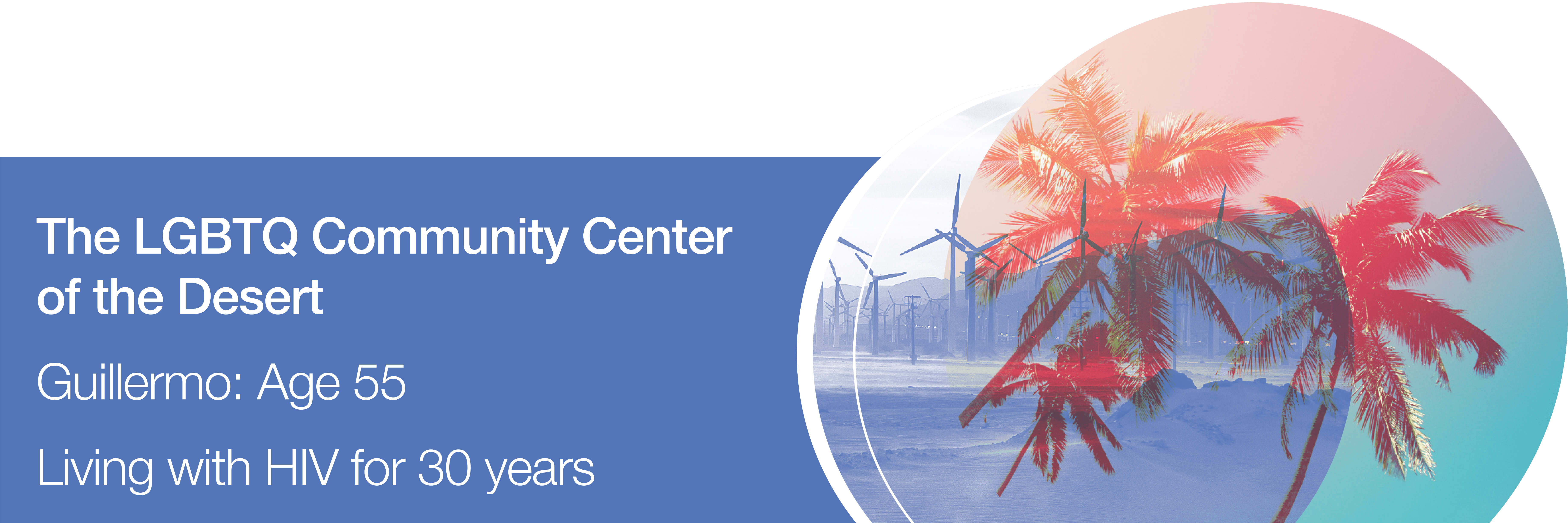
Conversations about HIV and Aging: Brett
Q: How has living with HIV changed your perspective on aging?
A: When I tested positive in 1993, I figured I had months to live. Now, 28 years later, I feel that whatever time remains is a gift, and so I try to live each day as positive as possible.
Q: What does community mean to you? Where do you find your 'tribe' to support your journey?
A: Community and a sense of ‘tribe’ means a lot to me. I’ve been blessed with having a tribe of my partner and close friends that support and nurture me when I need it most. I’ve also been highly involved with being an HIV and LGBTQ volunteer for many organizations that bring me joy.
Q: What's the best advice you've been given?
A: Don’t sweat the small stuff. My dad told me that since childhood, and while it’s not always easy to stick to it, I do try.
Q: What have you learned about yourself living with HIV that your younger self would be surprised by?
A: That I’m resilient and can take care of myself when needed most. I wasn’t always a leader, but now I’ve embraced my tenacity and voice when it comes to HIV and aging and living with HIV.
Q: What song do you play when you need to motivate yourself?
A: There are a few, but “Rise,” by Katy Perry comes to mind. It puts me in a soulful, reflective mindset, especially this version https://www.youtube.com/watch?v=U85U3dPuiR4.
Q: How did the U=U message shift your outlook on dating and connection?
A: I love the campaign and only wish it was present much earlier in the pandemic cycle. After so many years of living in a mindset of self-doubt, rejection, and feeling ‘other than,’ it’s hard to release my mind to this message with some interactions, with those still so uninformed about HIV and transmission.
Q: What challenges have you faced aging with HIV?
A: Many challenges over the years, from an AIDS diagnosis and 20 T cells, to now thriving due to medications. Although, my medication regimen is the last of the line for what will work given that I’m resistant to all of the current one-pill and other treatments.
Q: What service or support group has made the biggest positive impact on your health and wellness?
A: Being part of both the AIDS/LifeCycle and Dining Out For Life have been supportive at many levels, and they’ve enabled me to find my “voice” when it comes to public speaking, showing my weaknesses, strengths, and plotting the path forward.
Q: What do you do to take care of your mental health?
A: Not well enough some days, but I continue to try my best through positive external activities, community gatherings, and riding my bike as much as I can.
Q: What do you want people reading this to know about aging with HIV?
A: That it doesn’t have to define you, and it doesn’t have to be a death sentence, either. Aging is a process that you can embrace.
Q: What's your goal for the future? What do you hope to be doing in the next 5-10 years personally or career-wise?
A: Now that’s the $10,000 question. At 60 now, I’m looking at ten years remaining for work potentially, and so what will that be and where? My dream would be to close out my work life with a nonprofit that provides grants to LGBTQ organizations that are struggling.
Q: What's your pro-tip for someone newly diagnosed with HIV?
A: Get into care immediately, including a support group or activity with others who are HIV positive. Let their guiding light and love flow into you.
Q: What book or movie inspired you most?
A: “The Front Runner.” It speaks to my childhood, my goals, my struggles, and continues to bring me happiness, sadness, grief, and hope, even after reading it for the fourth time.
Q: What's your personal mantra?
A: Om mani padme hum. It means that in dependence on the practice of a path, which is an indivisible union of method and wisdom, you can transform your impure body, speech, and mind into the pure exalted body, speech, and mind of a Buddha.










